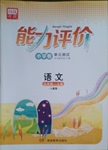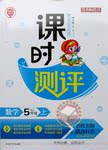题目内容
Imagine a people whose language has no word for "marriage" or "husband". Just such a tribe lives in the mountains of southeastern China. Lake Lugu,known as the " Country of Women",is home to the Mosuo. It is one of the few 1 matriarchal (母系的) societies in the world which manage to 2 through thousands of years.
Mosuo culture goes around women:the women make all the important 3 ,control the family's resources,and pass their 4 onto their children. 5 marrying,a Mosuo woman takes many lovers over her lifetime,and the 6 children will always live with her.
7 the Mosuo language has a word for "mother",there is 8 word for "father" and Mosuo children 9 all older men as "uncle".
Getting to Lake Lugu isn't easy,which helped the tribe keep their customs and 10 . A generation ago,few outsiders had ever 11 Lake Lugu or the Mosuo.
But in recent years,word 12 about the value of their culture and the beauty of the lake. These reports attracted travelers and,13 ,this onceisolated paradise seems filled with tourists who've come to see the locals. Along with the visitors 14 stories of the outside world,15 the young to leave home for the 16 in search of new opportunities.
For better or worse,the unique world of the Mosuo people is 17 . Many of the older Mosuo women 18 the old days,before the outsiders came with their strange clothing and strange 19 . But most agree that change is necessary. And some of the younger Mosuo women are speaking openly about getting 20 a word their grandmothers still don't understand.
( ) 1. A. lost B. left C. remaining D. imaginable
( ) 2. A. survive B. leave C. prove D. continue
( ) 3. A. plans B. decisions C. clothes D. notes
( ) 4. A. full names B. middle names C. nicknames D. surnames
( ) 5. A. Rather than B. Other than C. More than D. Better than
( ) 6. A. intending B. surviving C. desiring D. resulting
( ) 7. A. Because B. When C. Unless D. While
( ) 8. A. one B. some C. no D. proper
( ) 9. A. refer to B. make for C. look at D. turn to
( ) 10. A. habits B. culture C. arts D. science
( ) 11. A. thought of B. speak of C. heard of D. admit of
( ) 12. A. took out B. broke out C. went out D. sent out
( ) 13. A. at times B. in no time C. at a time D. in time
( ) 14. A. go B. take C. bring D. come
( ) 15. A. making B. forcing C. attracting D. advising
( ) 16. A. villages B. cities C. factories D. schools
( ) 17. A. changing B. improving C. developing D. remaining
( ) 18. A. dislike B. hate C. enjoy D. prefer
( ) 19. A. words B. styles C. opinions D. ideas
( ) 20. A. paid B. separated C. dressed D. married
1. C由上下文可知是"保存下来的母系社会之一"。
remaining可作前置定语,表示"保存下来的",而left只能作后置定语。
2. A经过几千年"幸存"下来。
3. B根据前面的Mosuo culture goes around women可知,在摩梭人中,一切重大决定都由妇女作出。
4. D surname指"姓",这里是说母亲把自己的"姓"传给下一代。
5. A由后文的a Mosuo woman takes many lovers over her lifetime可知,摩梭人并不结婚。
rather than表示"并非,而不是"。
6. D resulting意为"结果的,因此而生下的"。
7. D这句话的两个分句之间是让步关系。句意为:尽管摩梭人的语言中有"母亲"一词,但却没有"父亲"。选项中只有while可表示让步。
8. C由上一题可推知答案。
9. A refer to sb. as相当于consider sb. as,意为"把某人称作"。
10. B句意为:……帮助他们保持自己的风俗和文化。
11. C此句和前句的Getting to Lake Lugu isn't easy相对应,意为:一个世纪前,很少有人听说过Lake Lugu or the Mosuo。
12. C消息传出来。go out意为"(消息或新闻) 发布,公布";word在此有"消息"之意。
13. A at times是固定搭配,意为"经常地"。
14. D此句是一个倒装句,正常语序应是stories of the outside world come along with the visitors,come along with表示"和...... 一起来"。
15. C attract 吸引",attracting作结果状语。
16. B leave ... for...表示"离开……到…… 去",句意为:离开家到城市里去寻找机会。
17. A由上下文可推知:摩梭人的独特世界正在发生改变。
18. D由后文可知,摩梭人中一些上年纪的妇女更喜欢在外人来之前的生活。
19. D 一些奇怪的"想法"。只有D合适。
20. D以前摩梭妇女是不结婚的,但现在她们也开始谈论这个以前从不涉及的话题。

 能力评价系列答案
能力评价系列答案 唐印文化课时测评系列答案
唐印文化课时测评系列答案